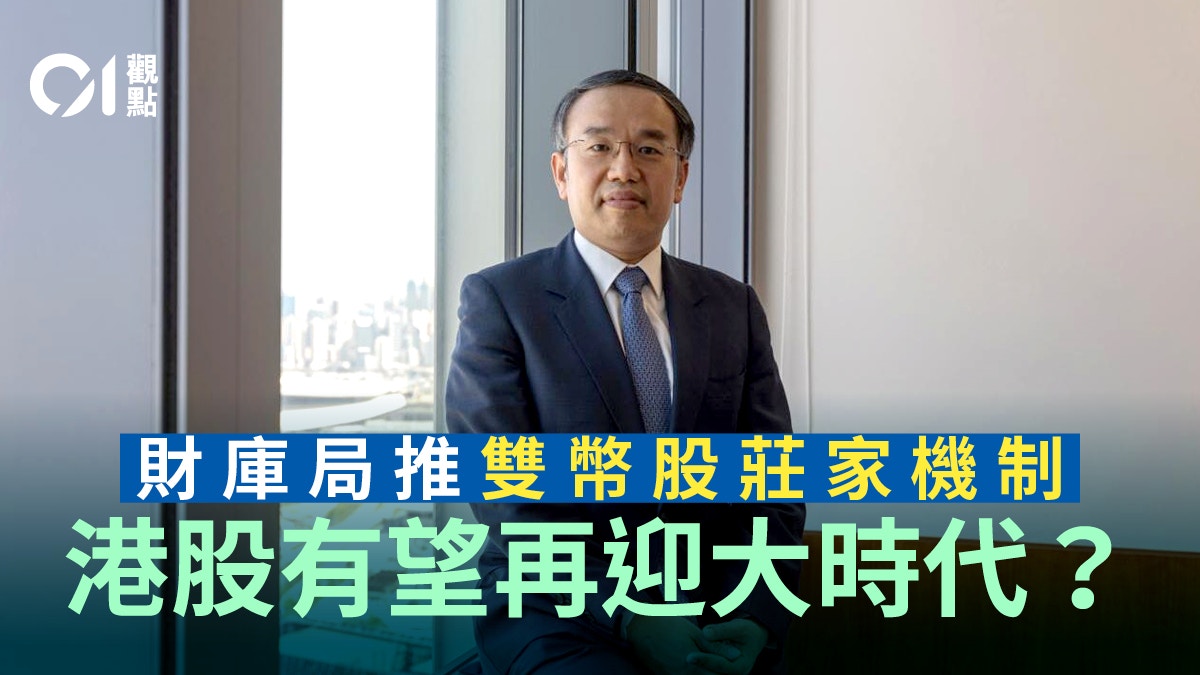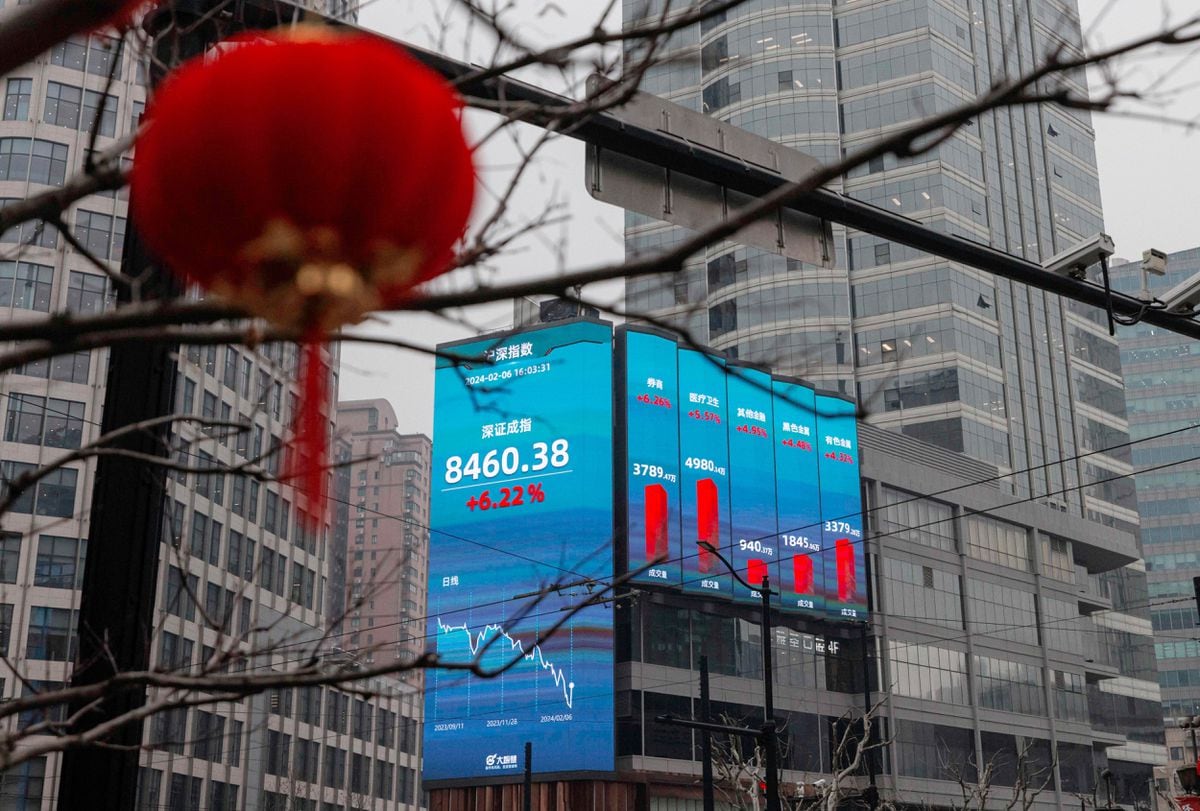The Secretary for Financial Services and the Treasury, Xu Zhengyu, told the Legislative Council on Monday (3rd) that he plans to amend the law within this year to exempt market maker accounts from stock trading stamp duty for specific transactions of dual-currency stocks, in line with the upcoming first half of next year by the Hong Kong Stock Exchange. The launch of the dual-currency stock market maker mechanism is in preparation for the upcoming addition of RMB counters for Hong Kong Stock Connect.
Dual currency stock means that a stock is quoted, traded and settled in both Hong Kong dollars and Renminbi at the same time. The stocks of the two currencies must be of the same type and have the same rights.
Dual-currency stocks are not a new system of the Hong Kong Stock Exchange. However, in the past, due to the undeveloped offshore RMB transactions and the lack of incentives for companies listed in Hong Kong to increase additional administrative expenses, dual-currency stocks have not been popular all the time. Development" (80737) a dual currency stock.
It has been nearly 20 months since the Hong Kong stock market entered a downtrend, but it has not yet bottomed out.
Can facilitate offshore RMB and Hong Kong stock trading
In order to promote dual-currency stocks and strengthen Hong Kong's role as an offshore RMB center, the Hong Kong Stock Exchange, the Securities and Futures Commission, and the HKMA propose to establish a dual-currency stock market maker mechanism on the Hong Kong Stock Exchange to facilitate bookmakers to use the dual-currency price difference for "arbitrage." Trading”, helping to smooth out the price difference and also encouraging them to actively trade to stabilize prices, which can ultimately greatly improve the liquidity of offshore RMB and dual-currency stocks.
On the other hand, it is also convenient for some investors who want to trade directly in RMB to buy and sell Hong Kong bills. In the future, the "Hong Kong Stock Connect" that allows dual-currency stocks to connect to the mainland is more likely to bring additional transactions to the Hong Kong market.
Since the beginning of last year, the Hong Kong stock market has fallen into a long downtrend, and the turnover has gradually shrunk.
Especially since the beginning of this year, affected by a series of global economic problems such as the US interest rate hike and the Russian-Ukrainian war, the stock market performed even worse.
The Hang Seng Index once fell below the 17,000-point mark on Monday, the lowest level since the financial tsunami, and the turnover was only HK$63.33 billion, far below the average daily turnover of 166.7 billion last year.
The government and the Hong Kong Stock Exchange are considering the introduction of a dual-currency stock market maker mechanism and the exemption of maker stamp duty. In theory, it can not only activate the weak stock market, but also promote the liquidity of offshore RMB, which is a welcome move.
Dual currency stocks may have supply or not demand
After the announcement, major mainland companies such as Tencent, Alibaba, JD.com and some Hong Kong companies such as New World and Sun Hung Kai have expressed their support or actively considered joining RMB counters.
That said, how well this actually works depends on many other factors.
The basic condition for becoming a dual currency stock is that a new company goes public and raises both HKD and RMB funds, or an already-listed company raises RMB funds.
In other words, only companies that need new RMB funds will become dual currency stocks.
However, the current global asset market is extremely sluggish, and companies that intend to raise new funds are reluctant to act at this time due to poor valuations. The amount of funds raised in the US stock market and Hong Kong stock market this year has dropped by more than 90% and 70% respectively.
Even if the mechanism is introduced in the coming year, it may not be able to stimulate the market.
Whether dual currency stocks can be popularized depends on the degree of RMB internationalization.
In response to a member's question on Monday, Xu Zhengyu said that after communicating with the government, financial institutions and investment managers, he found that the market's interest in the renminbi was much greater than when Hong Kong issued renminbi securities. product ready.
While it makes sense to do a good job in infrastructure first, dual currency stocks still have some questions to answer.
At present, most of the newly listed companies in Hong Kong are mainland companies. For example, in 2021, mainland companies will account for 96% of the financing amount in IPOs.
However, if mainland enterprises need RMB funds, they can raise funds in the mainland market.
Most mainland companies listed in Hong Kong want to raise US dollars (the Hong Kong dollar is pegged to the US dollar) on the one hand, and to attract international investors on the other hand.
Therefore, even as Xu Zhengyu said, the market's interest in renminbi capital has increased a lot, but companies may not want to raise renminbi in Hong Kong, and there may be a market situation where there is demand but no supply.
Whether companies will eventually come to Hong Kong to raise RMB funds depends a lot on their demand for offshore RMB. In other words, it also depends on the degree of RMB internationalization.
If the role of the renminbi in cross-border trade is more important, the role of the offshore renminbi will naturally be greater, then it is likely that more companies will become dual-currency stocks.
Therefore, the dual currency stock market maker mechanism can only be used as a supporting infrastructure policy. It is not wrong to do it first, but Hong Kong needs more other measures and policies to help the internationalization of the RMB and strengthen its status as an international financial center.
For example, many regions are accustomed to handling international trade in US dollars. However, with the increase in the value of the RMB and the decline in the credit of the US dollar, many regions or companies that have contacts with China do not resist the use of the RMB.
Hong Kong can actively explore ways to promote and help these enterprises to conduct cross-border trade settlement in RMB, so as to make the RMB more popular.
Is it good for the hostaged central bank to internationalize the renminbi and Hong Kong to sanction Russia to create a new international monetary system?
Hong Kong must seize the opportunity amid the Ukrainian crisis hitting the global economy




